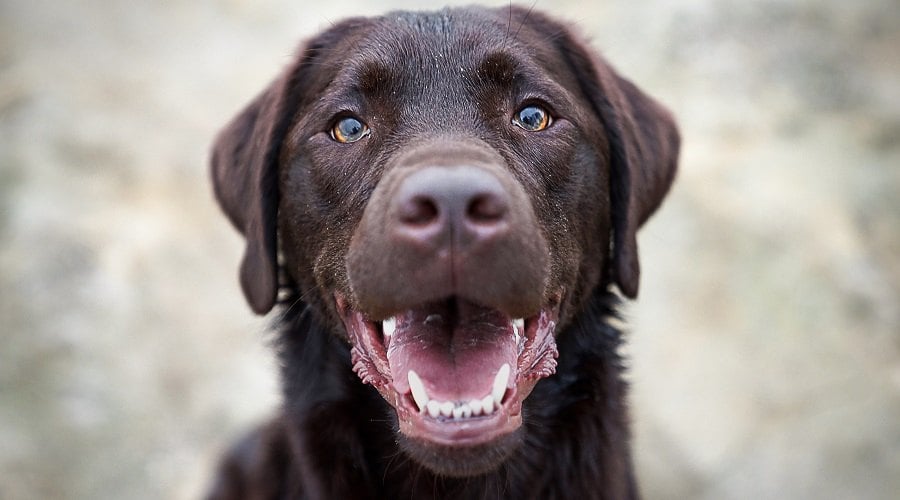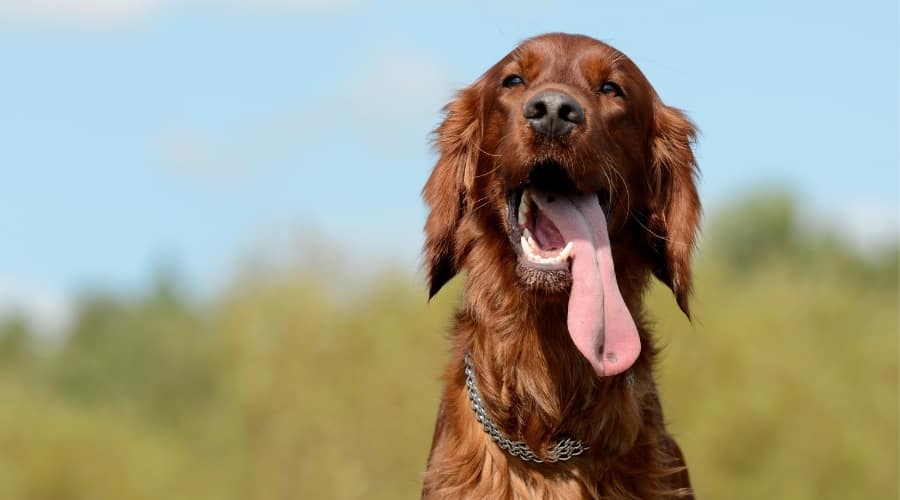How Smart Is Your Dog? 10 Breeds That Outsmart The Rest
When you purchase through links on our site, we may earn a commission. Here’s how it works.
The smartest dog in the world could learn over 1,000 words. But most “smartest dog breeds” lists aren’t measuring vocabulary. They’re measuring trainability — how quickly a dog learns a new command and how reliably they respond.
Table of Contents
In this guide, we’ll rank the smartest dog breeds based on obedience and working intelligence — and explore what newer research says about canine cognition.
What Actually Makes A Dog “Smart”?
When people talk about the smartest dog breeds, they’re often referring to trainability. But canine intelligence is broader than how many tricks a dog can perform.

Researchers generally describe three types of intelligence in dogs:
- Instinctive intelligence is a breed’s natural ability — like herding, guarding, or retrieving — that doesn’t require formal training. These traits are rooted in what the breed was originally developed to do.
- Adaptive intelligence refers to a dog’s ability to learn from its environment. Dogs high in adaptive intelligence often seem like they “figure things out.”
- Working and obedience intelligence measures how well a dog learns from humans. It reflects how quickly they understand new commands and how consistently they respond.
Most popular rankings — including the one below — focus on working and obedience intelligence because it’s measurable and practical for owners.
However, newer studies suggest that different breeds may excel in different cognitive domains. We’ll explore that research after the rankings.
Which Dog Breed Is The Smartest?
If intelligence were a competition, one breed would win by a landslide. The Border Collie consistently ranks as the smartest dog breed in the world.
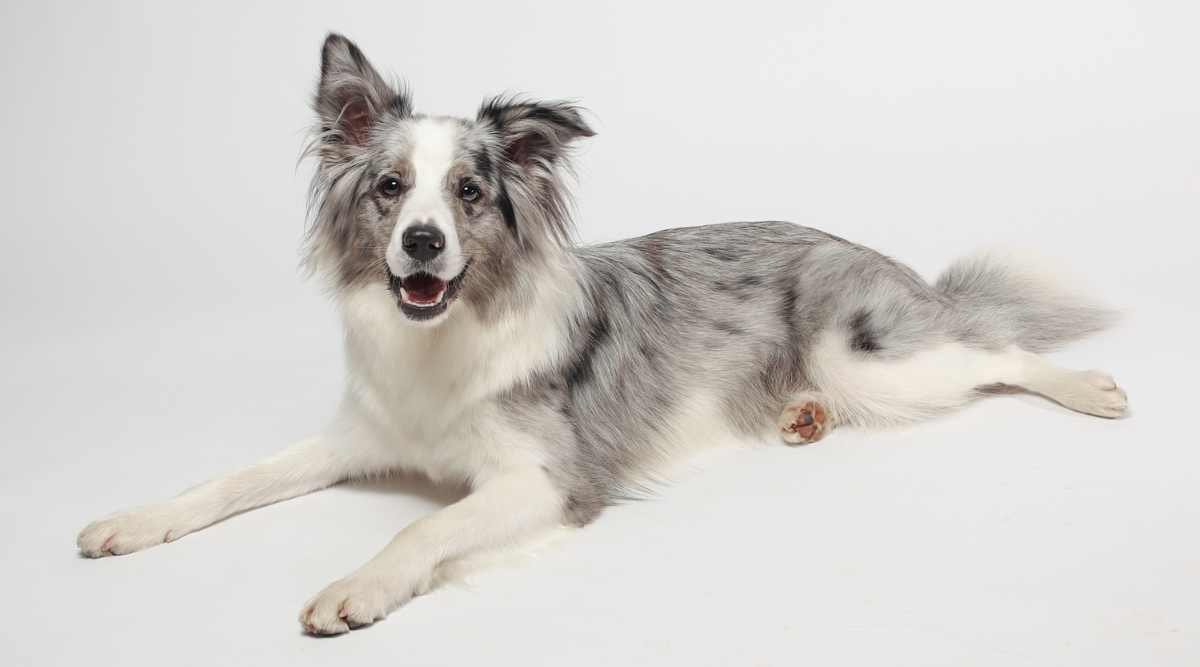
This herding dog is known for its lightning-fast learning, intense focus, and high energy. In trials, Border Collies have demonstrated the ability to understand new commands with fewer than five repetitions. They also obey those commands on the first attempt nearly every time.
Their instinctive intelligence is exceptional, especially in herding scenarios where they make independent decisions without direct input. Combined with high adaptive and working intelligence, Border Collies are often used in agility sports, advanced obedience, and complex search and rescue work.
They are brilliant, but not always easy to manage.
These dogs need mental stimulation and daily physical activity to thrive. For the right owner, their intelligence makes them one of the most rewarding and challenging companions you can have.
Pet Insurance for Smart, High-Activity Dogs
Highly intelligent breeds tend to be active, curious, and injury-prone, which can mean bigger vet bills over time. Pet insurance can help cover diagnostics and treatment for new conditions, so you can act quickly when something goes wrong. For help choosing coverage, see our guide to the best pet insurance for dogs and get a free quote using the form below.
Top 10 Smartest Dog Breeds (Based On Trainability Rankings)
According to Dr. Stanley Coren, a psychology professor and researcher at the University of British Columbia, trainability is a key marker of intelligence.
In his book “The Intelligence Of Dogs,” Coren evaluated 110 breeds based on how many repetitions it took for them to learn a new command—and how often they obeyed it the first time. The breeds in his top tier learned commands in five or fewer repetitions and followed them 95% of the time or more.
Here is our list of the top 10 smartest dog breeds based on Stanley Coren’s research. These ten breeds stood out in intelligence tests for their quick learning, strong memory, and consistent obedience. Each one brings its own style of smarts to the table.
1. Border Collie
Border Collies are widely regarded as the most intelligent dog breed.
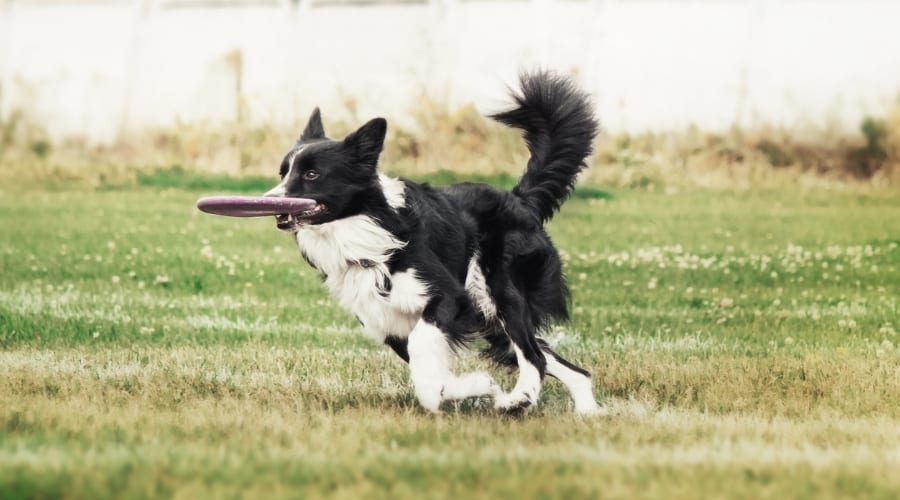
Originally developed in the borderlands of England and Scotland to herd sheep, these dogs are prized for their unmatched work ethic and ability to make independent decisions in the field. They are frequently seen dominating agility courses, obedience trials, and competitive dog sports.
What sets the Border Collie apart is the combination of instinctive herding talent, high energy, and rapid learning. Owners often describe them as having an almost human level of focus and comprehension.
But their brilliance comes with a price. They need daily mental and physical stimulation or they can quickly become bored and destructive.
What Makes Them So Smart
- Learns new commands in fewer than five repetitions
- Obeys commands on the first try 95% of the time or more
- Natural herding instinct with independent decision-making skills
- Excels in agility, obedience, and problem-solving challenges
2. Poodle
Poodles are often underestimated because of their elegant appearance, but they’re consistently ranked among the smartest dog breeds.

Originally bred as water retrievers in Germany and refined in France, Poodles were prized for their quick learning, obedience, and adaptability. Their intelligence is matched by their versatility, making them excellent in both working roles and as family companions.
Available in standard, miniature, and toy sizes, all Poodles share the same sharp intellect and trainable nature. They thrive in structured environments with positive reinforcement and are eager to engage in both mental and physical activities. From advanced trick training to competitive obedience, Poodles excel when given tasks that challenge their minds.
That said, intelligence can come with challenges. Without consistent stimulation, Poodles may develop behavioral issues such as excessive barking or destructive chewing. Toy and Miniature Poodles, in particular, can be prone to anxiety if not properly socialized from a young age.
What Makes Them So Smart
- Originally bred for practical work, not just aesthetics
- Extremely quick to learn and retain new commands
- Highly responsive to human emotion and tone
- Strong performance in obedience, agility, and trick competitions
3. German Shepherd
German Shepherds are one of the most respected working dog breeds in the world. The breed was first developed in Germany in 1899 to herd sheep and guard livestock. Their strength, intelligence, and responsiveness made them ideal for managing flocks and protecting them from predators.
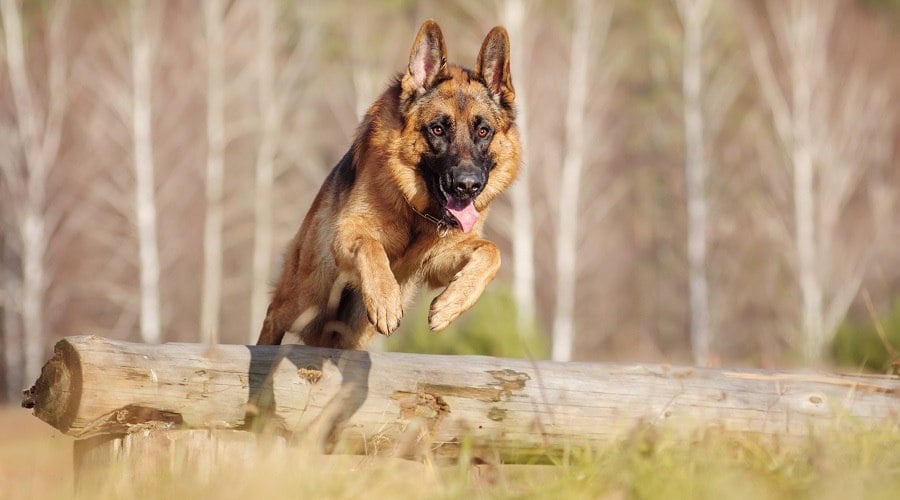
That same skill set has carried over to modern roles. German Shepherds are commonly used as police dogs, search and rescue dogs, service animals, and in agility work.
They are quick learners who thrive on structure and purpose. With the right training, they can perform advanced tasks and remain focused in high-pressure environments.
They are also deeply loyal and form strong bonds with their owners. German Shepherds can make excellent family dogs when they receive proper exercise, mental engagement, and early socialization. Without clear guidance and consistent activity, however, they may become anxious or overly protective.
What Makes Them So Smart
- Originally bred for herding and guarding livestock
- Exceptional memory and ability to perform complex tasks
- Consistently ranks high in obedience and working intelligence
- Thrives in roles requiring focus and responsibility
- Bonds deeply with handlers and responds well to leadership
4. Golden Retriever
Golden Retrievers are one of the most popular dog breeds in the United States, and they’re one of the smartest dog breeds as well.

Originally bred in Scotland as gun dogs, they were developed to retrieve waterfowl during hunts. Their gentle mouths, strong swimming ability, and eagerness to please made them invaluable in the field.
Today, those same traits make Golden Retrievers standout companions and service animals. They are loyal, calm, and friendly to all.
But don’t let the dopey grin fool you. Behind that lovable face is a smart dog who learns quickly—and occasionally chooses not to do what you want, just to keep things interesting.
What Makes Them So Smart
- Responds well to consistent structure and praise
- Bred for complex retrieval work on land and water
- Naturally eager to please and easy to train
- Reliable in service, therapy, and emotional support roles
- Social, adaptable, and non-aggressive
5. Doberman Pinscher
The Doberman Pinscher was originally bred in the late 1800s as a personal protection dog. The goal was to develop a breed that combined intelligence, loyalty, speed, strength, and endurance into one dependable guardian.
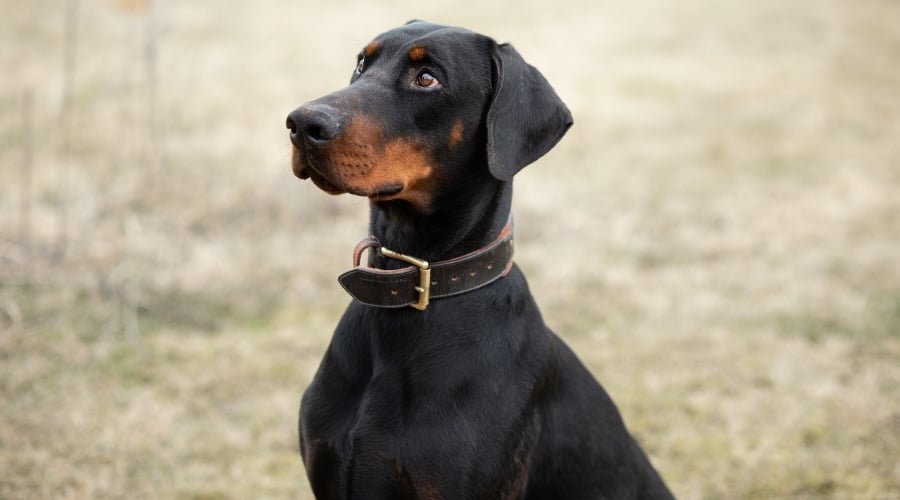
That goal was met—and then some. Dobermans are fearless, focused, and highly responsive to training.
Over time, careful breeding has shaped the Doberman into a more balanced and adaptable companion. While they still retain their protective instincts, modern Dobermans are also affectionate and loyal with their families. With firm guidance, mental stimulation, and proper socialization, they excel as both working dogs and devoted pets.
What Makes Them So Smart
- Bred for protection with a blend of strength and mental sharpness
- Strong memory and high retention of complex commands
- Quick to learn and highly obedient with proper training
- Loyal and deeply bonded to their owners
6. Shetland Sheepdog
The Shetland Sheepdog, often called the “Sheltie,” may look like a miniature Rough Collie, but don’t let the size fool you. These small herding dogs are packed with brainpower, agility, and an intense desire to work.

Originally bred in the Shetland Islands of Scotland to herd livestock in harsh conditions, Shelties needed sharp instincts, quick thinking, and strong loyalty to thrive.
That same intelligence makes them highly trainable and responsive today. Shelties excel in obedience and agility competitions and are often top performers in canine sports. They are also incredibly attuned to their owners, often anticipating commands before they’re even given.
That said, their alertness means they can be prone to barking without proper training and structure.
What Makes Them So Smart
- Bred to herd independently in challenging environments
- Fast learners with excellent recall and response rates
- Performs exceptionally well in obedience and agility trials
- Naturally in tune with their handler’s movements and tone
- Highly sensitive and eager to please
7. Labrador Retriever
The Labrador Retriever is not only one of the most popular breeds in the world but also one of the most intelligent and versatile.
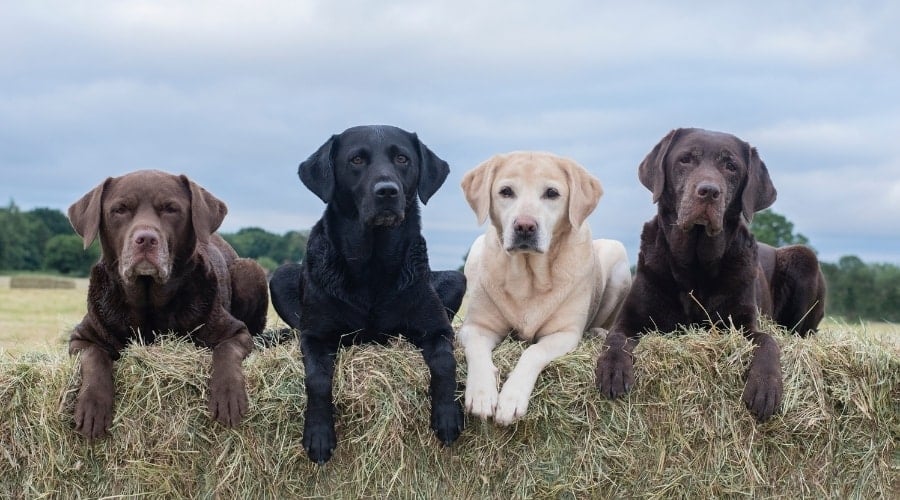
Originally bred in Newfoundland as a fisherman’s helper, Labs were used to retrieve nets and fish from icy waters. Their strength, swimming ability, and gentle mouths made them ideal for the job.
Today, that same combination of smarts and work ethic has made Labs a top choice for service work, search and rescue, detection tasks, and family life.
They are known for being friendly, eager to please, and highly trainable. While they are generally easygoing, Labs need both mental and physical activity to stay balanced and avoid unwanted behaviors like chewing or hyperactivity.
What Makes Them So Smart
- Originally bred for demanding, task-oriented retrieval work
- Frequently used as guide dogs, therapy dogs, and detection animals
- Quick learners with strong memory and problem-solving ability
- Very social and easy to train in both home and professional settings
- Responds well to structure, consistency, and regular engagement
8. Papillon
The Papillon may look like a lap dog built for luxury, but this tiny breed is all brains.
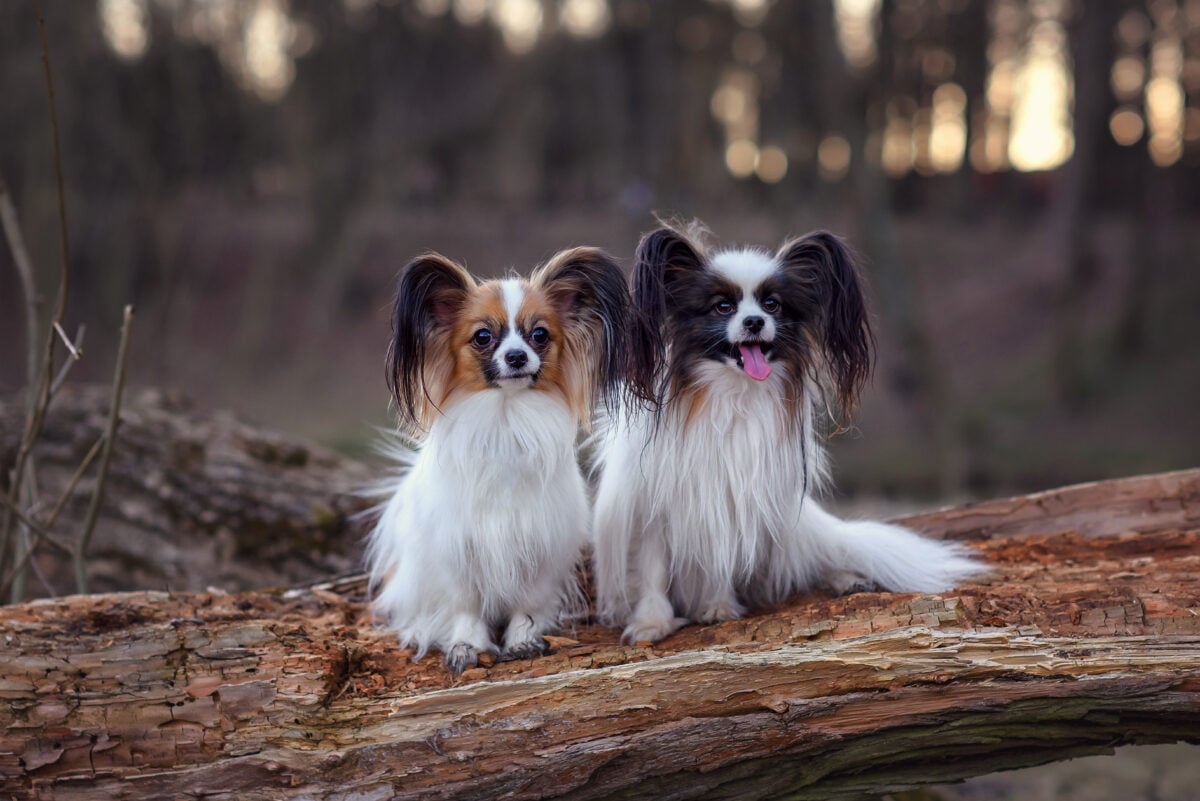
Named after the French word for “butterfly,” in reference to their signature upright ears, Papillons have a long history as royal companions.
Despite their regal roots, they are highly active, alert, and incredibly intelligent—ranking among the top ten smartest dog breeds in the world. They’re one of only two toy breeds to make that list, along with the Toy Poodle.
Papillons are fast learners and love a challenge. They thrive on interaction and can master complex tricks, agility courses, and obedience routines.
Because they’re so eager and energetic, they require more physical and mental stimulation than most small breeds. Without enough engagement, they can become anxious or overly vocal.
What Makes Them So Smart
- High mental agility for a toy-sized breed
- Quick to learn new commands and routines
- Strong performance in obedience and trick competitions
- Extremely social and thrives on interaction with humans
9. Rottweiler
The Rottweiler is a powerful working breed with deep roots in Roman and German history.
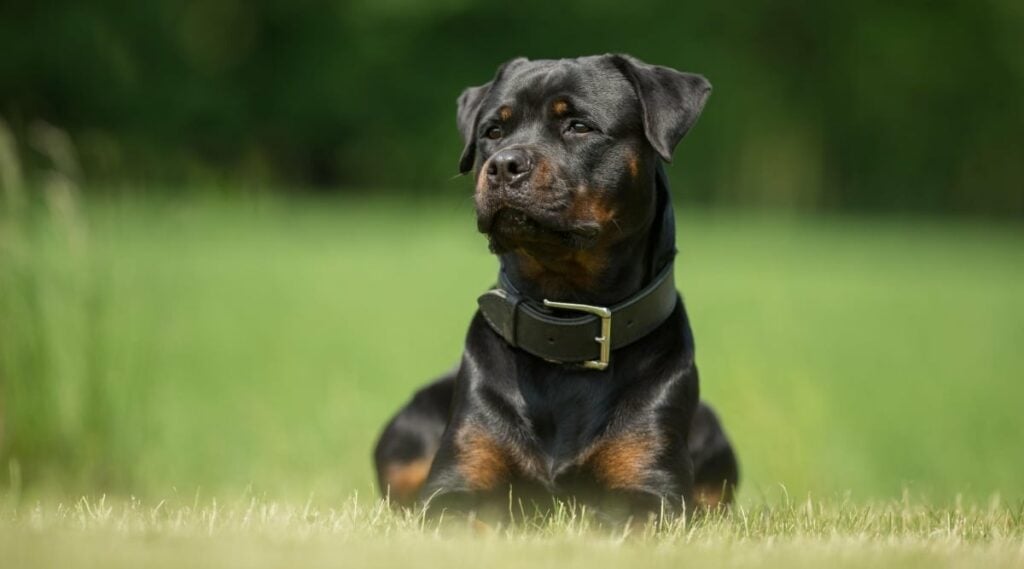
Originally bred in Rottweil, Germany, these dogs were used to herd cattle and pull heavy carts filled with butchered meat to market. Even as industrialization reduced their traditional roles, Rottweilers retained their strong work ethic and natural instinct to guard and protect.
Today, Rottweilers are known for their intelligence, loyalty, and dependability. They are quick learners with sharp instincts and thrive when given structure, purpose, and consistent training.
While they can be playful and affectionate with their families, they need early socialization and mental challenges to stay balanced and avoid overprotectiveness or boredom.
10. Australian Cattle Dog
The Australian Cattle Dog was developed to herd cattle across long distances in rugged, unforgiving terrain. This breed’s intelligence and determination made it a favorite among Australian ranchers who needed a dog that could think independently, move fast, and stay focused under pressure.
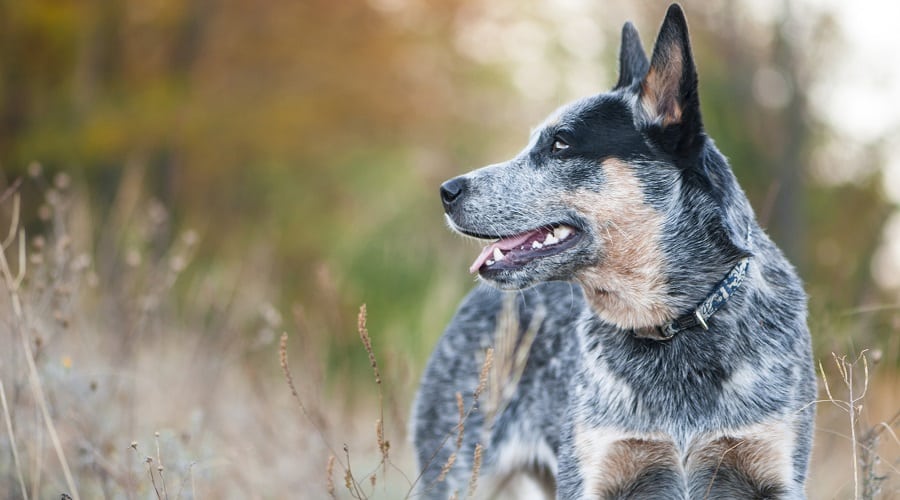
These dogs are highly energetic, agile, and work-driven. They’re most content when they have a job to do, whether it’s herding livestock or learning complex tasks.
Without consistent physical and mental stimulation, they can become restless and get into trouble. Their loyalty and protectiveness make them excellent companions for experienced owners who can meet their high activity needs.
What Makes Them So Smart
- Bred to work independently and manage herds across harsh environments
- Fast learners with strong critical thinking and decision-making skills
- Loyal, alert, and highly protective of their people and space
- Responds well to structured challenges and working roles
Dog Intelligence Isn’t Just About Obedience
For decades, many rankings of the smartest dog breeds were based on research by Dr. Stanley Coren, who evaluated breeds on:
- How quickly they learned new commands
- How consistently they obeyed known commands
These metrics measure working and obedience intelligence — and they remain one of the most practical ways to compare trainability across breeds.
However, newer research emphasizes that intelligence in dogs isn’t just about how fast they learn commands.
What Recent Studies Have Found
Scientists have found measurable differences between breeds in traits that are considered indicators of intelligence — including self-control, problem-solving ability, and how closely they look to humans for guidance.
Dog breeds are not all “the same” cognitively. There are real differences in how breeds communicate with humans, solve problems, and control impulses.
Inhibitory Control
One important trait researchers study is inhibitory control, which is essentially a dog’s ability to pause and resist acting on impulse.
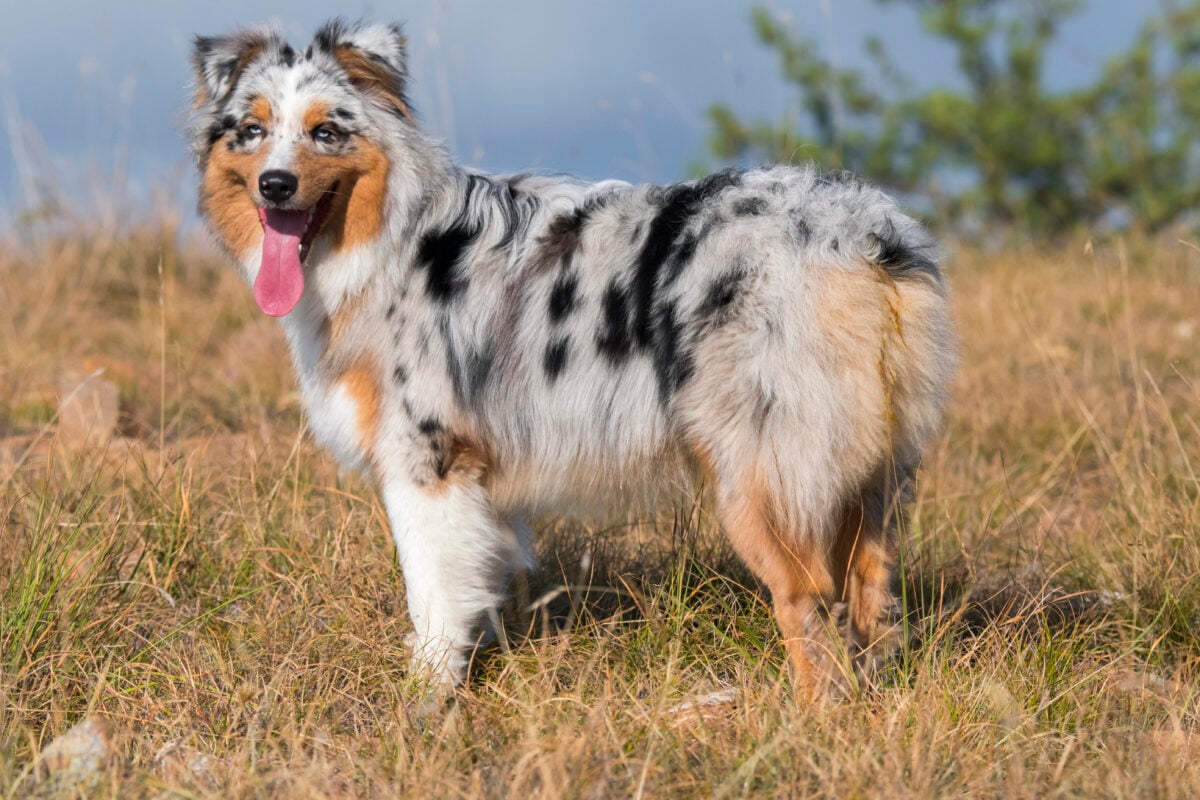
In tests measuring self-control:
- Border Collies and Australian Shepherds scored the highest, showing strong impulse control — a critical trait for herding dogs that must suppress their instinct to chase livestock while staying focused on commands.
- Labrador Retrievers, Belgian Malinois and German Shepherds scored lower on average in this test, meaning they were more likely to act quickly rather than pause.
Note: Lower inhibitory control can be desirable in certain working roles (e.g., police or military dogs) because it makes them highly responsive rather than inhibited.
Problem-Solving
Another trait researchers measure is spatial problem-solving — essentially, how efficiently a dog can figure out how to get around an obstacle to reach a visible reward.
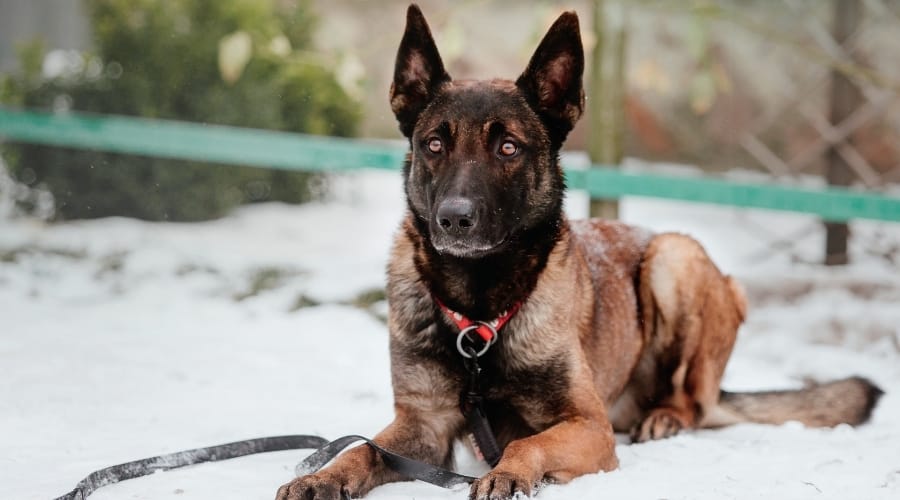
In these problem-solving tests:
- Belgian Malinois had the highest solve rate overall, followed by the Australian Shepherd, German Shepherd, and Hovawart.
- Border Collies were among the fastest among successful solvers.
- Golden Retrievers, English Cocker Spaniels, and Labrador Retrivers were among the slowest to solve the detour task.
Note: This does not mean they lack intelligence. Instead, it suggests they may rely more heavily on social cooperation than independent spatial reasoning when faced with a challenge.
Human-Directed Behavior
Researchers also looked at human-directed behavior — how often a dog turns to a person for help when faced with a difficult problem.
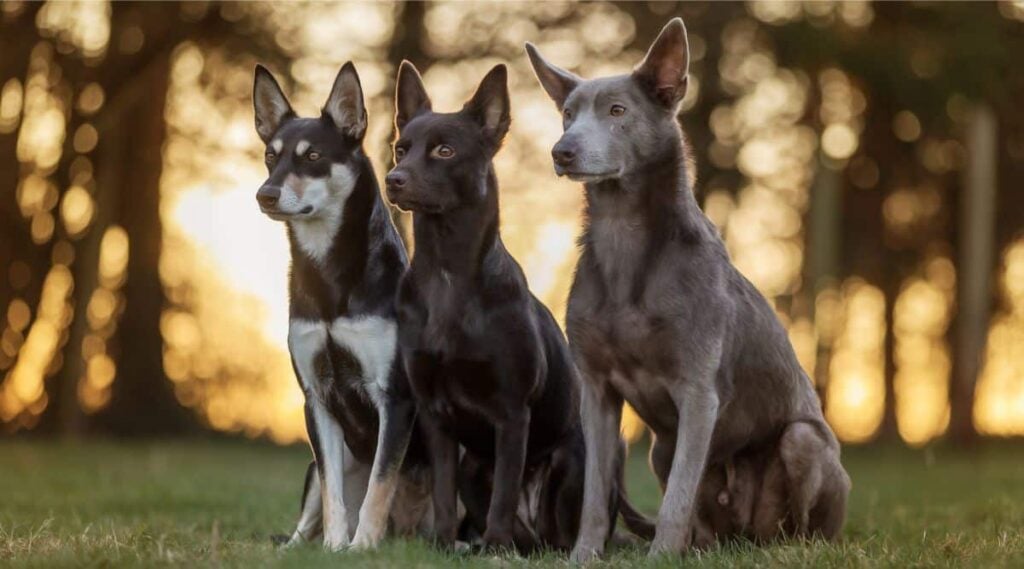
In reviewing human-directed behavior:
- Australian Kelpies, Golden Retrievers, Australian Shepherds, and Border Collies were more likely to seek human guidance. This suggests strong social intelligence and cooperative ability.
- Hovawarts, German Shepherds, and Malinois were more likely to keep working independently without checking in. That kind of independence can be extremely valuable in detection, protection, and tactical roles.
Interestingly, researchers did not find major breed differences in short-term memory or basic logical reasoning.
If You Want A Dog That…
| Category | Top-Performing Breeds |
|---|---|
| Works confidently without direction | Belgian Malinois, German Shepherd, Hovawart |
| Highly responsive to human cues | Golden Retriever, Australian Kelpie, Australian Shepherd, Border Collie |
| More self-controlled under temptation | Border Collie, Australian Shepherd |
| Figures out challenges quickly | Border Collie, Belgian Malinois |
The takeaway? Intelligence in dogs isn’t one straight ranking. It’s a combination of impulse control, social awareness, independence, and problem-solving — traits that show up differently depending on what a breed was developed to do.
Intelligence Profiles Differ By Breed Function
Many of the differences observed in research align with what these breeds were originally developed to do.
Herding Specialists
Border Collies, Australian Shepherds, and Australian Kelpies are known for high inhibitory control and strong human-directed responsiveness — traits essential for managing livestock. Herding dogs must suppress predatory instincts while staying intensely focused on handler cues.
Tactical & Working Dogs
Belgian Malinois and German Shepherds are frequently used in police and military roles. These dogs often demonstrate high responsiveness and strong drive. Their intelligence shows up in applied performance, focus under stress, and complex task execution.
Detection & Scent Specialists
Some of the most impressive intelligence shows up in scent work. Breeds like the Beagle, German Shorthaired Pointer, and Labrador Retriever demonstrate:
- Advanced scent discrimination
- Environmental awareness
- High persistence in complex tracking situations
- Ability to generalize scent patterns across environments
Beagles are widely used in airport and agricultural detection programs. German Shorthaired Pointers excel in field hunting roles that require stamina and independent problem-solving. Labs are among the most commonly used breeds in search-and-rescue, explosive detection, and even medical alert work, including diabetic and seizure detection.
These roles require more than obedience. They demand sensory processing, pattern recognition, focus under distraction, and applied decision-making — forms of intelligence that may not always be reflected in traditional trainability rankings.
If you’re interested in breeds developed specifically for field and tracking work, see our guide to hunting dog breeds.
Social Intelligence & Companion Breeds
Some dogs aren’t just quick learners — they’re deeply attuned to human interaction.
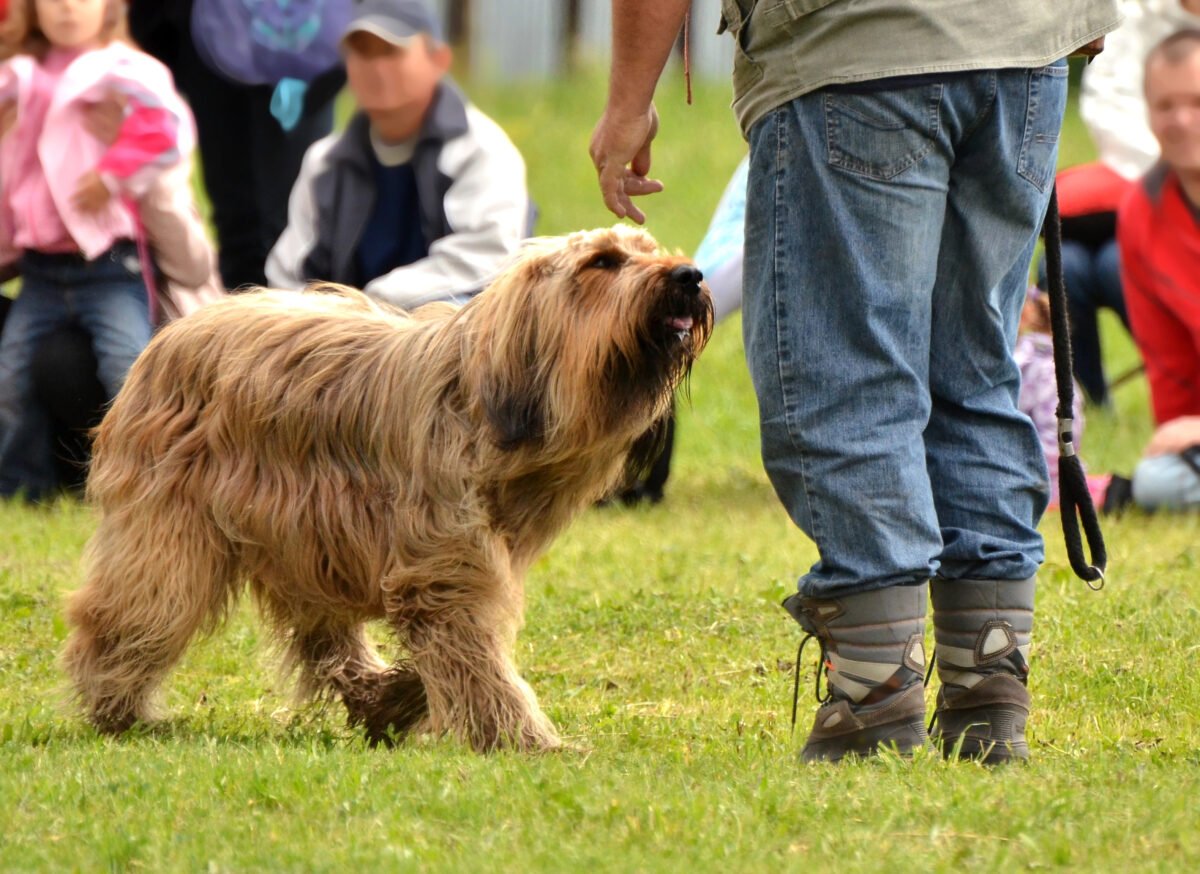
Research on cooperation and attention in dogs suggests that cooperative working breeds (such as Golden Retrievers, Briards, and Shetland Sheepdogs) and some brachycephalic breeds (including French Bulldogs, Pugs, and Cavalier King Charles Spaniels) may establish eye contact more quickly with unfamiliar humans and perform well in tasks involving human gestures, such as following pointing cues.
These traits reflect a form of social intelligence shaped by selective breeding. Dogs developed to work closely with people — or to function primarily as companions — may be especially attentive to human signals. This sensitivity is why many excel as therapy dogs, service dogs, and emotional support animals.
Is There An IQ Test For Dogs?
Not exactly — but researchers have tested something close.
In 2016, scientists published a study in the journal Intelligence exploring whether dogs have a version of “general intelligence,” similar to the human concept of IQ. Instead of testing obedience or tricks, researchers gave dogs a series of problem-solving tasks — things like navigating around barriers to reach food, choosing between quantities, and responding to cues.
What they found was interesting:
Dogs that performed well on one type of cognitive task tended to perform well on others. In other words, performance wasn’t random. There appeared to be an underlying mental ability influencing multiple skills.
That doesn’t mean dogs have IQ scores like people. There’s no standardized number, no ranking scale, and no official canine IQ chart. But the study suggests that, like humans, individual dogs differ in overall cognitive ability — not just in specific trained behaviors.
Importantly, the research was done on one breed (Border Collies), so it doesn’t rank breeds or declare one “smartest.” It simply shows that dogs vary in general problem-solving ability, and that those differences are measurable.
Quick Takeaway: Dogs don’t have official IQ scores like humans. However, research suggests that individual dogs can differ in overall cognitive ability — meaning even dogs within the same breed may vary in how they solve problems and process new challenges.
Are Some Dogs Actually “Dumb”?
The idea of a “dumb” dog is more myth than reality. What often gets labeled as low intelligence is usually something else entirely—like independence, stubbornness, or a different type of learning style.
Breeds that rank lower on obedience-based intelligence tests, such as the Afghan Hound or Basenji, aren’t necessarily less intelligent. They were bred for tasks that require self-direction and instinct rather than following human commands.
These dogs often think for themselves, which can make training a challenge but doesn’t mean they’re not smart.
Other breeds may seem slow to learn but simply require different motivation. For example, scent hounds like the Bloodhound are incredibly skilled in tracking but may ignore basic commands if there’s a more interesting smell nearby.
Instead of asking whether a dog is smart or not, it’s more useful to ask how their intelligence shows up—and what kind of environment helps them thrive.
The Smartest Dog In The World
When it comes to individual dog intelligence, one pup stands above the rest — Chaser, a Border Collie often referred to as “the world’s smartest dog.” Trained by Dr. John Pilley, a psychology professor, Chaser learned the names of over 1,000 objects and could differentiate between nouns and verbs.
What made Chaser unique wasn’t just her memory. It was her ability to understand complex commands and apply logic to new situations. In tests, she could infer the name of a new toy simply by eliminating the names of toys she already knew.
Chaser’s achievements showed just how far canine intelligence can go when paired with consistent, creative training. While not every dog will memorize a thousand words, her story highlights the potential of dogs to understand far more than we often give them credit for.
Mental Exercise For The Smartest Dog Breeds
Smart dogs need more than physical activity—they need mental workouts, too. Without regular mental stimulation, intelligent breeds can become bored, anxious, or even destructive. Our experts have a lot of great ideas you can consider in our article about brain games for dogs.



